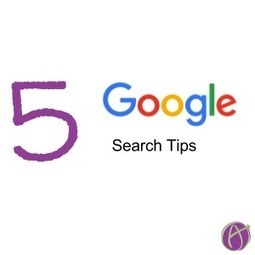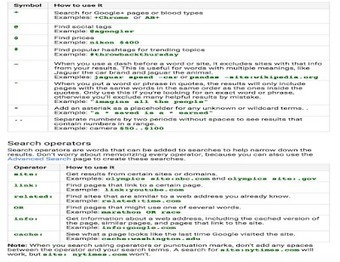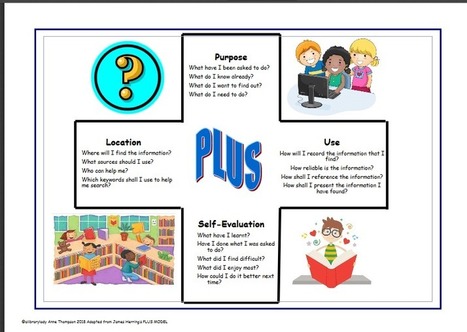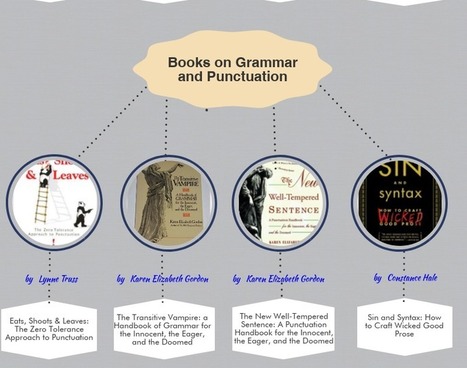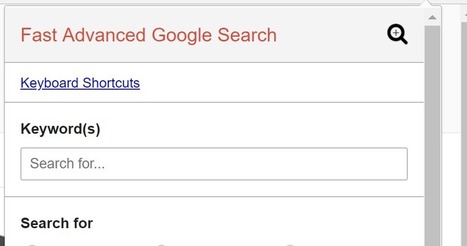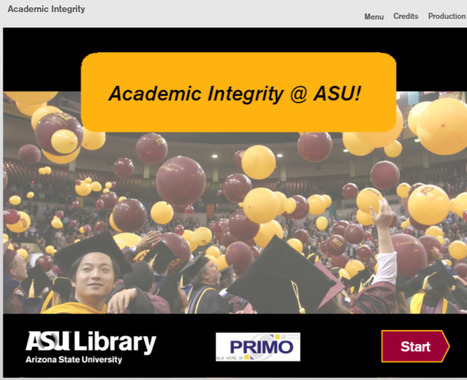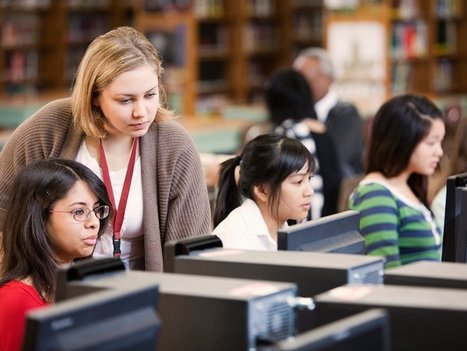There are so many useful skills you’ll develop while doing your research – from critical thinking and being able to evaluate your work and that of others, to time management skills. But the research world is rapidly changing, so what skills can you develop now to make you ready for the research future? In this post we guide you through some of the key skills for researchers today.
Get Started for FREE
Sign up with Facebook Sign up with X
I don't have a Facebook or a X account

 Your new post is loading... Your new post is loading...
 Your new post is loading... Your new post is loading...
Current selected tag: 'research skills'. Clear
What would happen if your boss asked you to get information and the information you came back with wasn’t credible? This is a situation many students may find themselves in if they lack the skills they need to decipher between credible sources and “fake news.” For example, sources found through a Google search aren’t always trustworthy. Using or providing sources that aren’t credible could result in very serious consequences.
One of the overlooked search strategies that I often share with students and their teachers is refining Google search results according to top-level domain. Refining a search according to top-level domain is a good way for students to discover high-quality content that might not otherwise rank highly in their search results.
This video clip is a bit old, but I still like using it to spark conversation on why we need to teach differently in today’s classrooms. When we have almost instant access to factual information, we shouldn’t be asking students to simply recall those facts. The Teaching Innovation Progression Chart highlights Research and Information Fluency as one of the key strands for student success. In a student-driven classroom, teachers should be modeling strategiesto guide student investigation, designing challenges that promote synthesis of resources to address an authentic task, supporting students as they acquire, evaluate, and apply information, and facilitating and formatively assessing authentic tasks where students are engaged in research and using information fluently. In these classrooms, we should see students constructing questions to guide research, selecting the most appropriate digital tools and information sources, assembling and synthesizing information to address authentic tasks, and using tools to powerfully display and interact with information. Via Ana Cristina Pratas
Students often think that because they can type a phrase into Google or saying something aloud to Siri they know how to search. Of course, any teacher who has heard a student say "Google has nothing on this" or "there's no information about my topic" knows that students don't inherently know how to search despite growing up in a world filled with Google and Siri. When your students need help formulating or refining a search, have them review the following ten tip. Better yet, have them review these tips before starting their next searches.
Scientific research has changed, now being largely conducted in collaborative teams. However, undergraduate student training has not necessarily kept pace with these changes. In order to work effectively in collaborative settings, students need to develop not only the technical skills related to their discipline, but also communication and interpersonal skills needed to work in teams. Nora J. Casson reports on research which proposes a model for explicitly teaching collaborative skills, while engaging students in meaningful scientific research. Skills such as managing data from multiple collaborators or giving and receiving feedback via file-sharing platforms should be taught as explicitly as traditional skills such as how to use a pipette or how to formulate a hypothesis.
As the volume of information grows in databases, libraries and on the internet, information literacy skills are key to being able to find and manage information effectively in a complex society
The following article is adapted from our upcoming book on future-focused learning. It talks about how to teach learners to build solid research skills for school and for life.
Google Scholar is absolutely one of the best academic search engines out there. It allows you to easily search for and access academic papers and journal articles related to your topic of interest. Besides the search functionality, Scholar also provides you with a host of other interesting features to help you in your research jounrey.
Zeynep Tufekci writes: "What we are witnessing is the computational exploitation of a natural human desire: to look “behind the curtain,” to dig deeper into something that engages us. As we click and click, we are carried along by the exciting sensation of uncovering more secrets and deeper truths. YouTube leads viewers down a rabbit hole of extremism, while Google racks up the ad sales." Via Mary Reilley Clark 
Mary Reilley Clark's curator insight,
March 11, 2018 8:05 PM
I use YouTube purely for recreational purposes--and the occasional "how do I replace [insert random broken household item]"-- but I just spent some time looking at various controversial topics. Sure enough, click on one anti-vaccination video, and all the recommended videos become anti-vaxx, even though when I did a simple [vaccination] search, the first page of videos were predominately pro-vaccination.
When I teach about doing Internet research I always talk about staying focused, since it's so easy to get distracted by irrelevant sites. My example is always YouTube. I ask students to raise their hand if they've watched a YouTube video for fun. Then I ask them to raise their hand if they stopped at that one video. No one does. Now, instead of just emphasizing why that rabbit hole can cost them research time, I'll be asking students to be more aware of where that rabbit hole might take them.
Information cannot always be trusted. Despite popular opinion regarding the devastating impact of the Internet on the modern age, the inherent untrustworthiness of information is not new. Satire, misinformation, and disinformation have been circulating for centuries, even long before the printed word. However, thanks to the relative ease of creating and sharing content online, our students are confronted with publications created solely to entertain, persuade, and incite via incorrect or incomplete statistics.
Try these 5 Google Search tips to up your game when using a Google Search. Turn on tools, use your voice, and use the Advanced Search builder.
Research Shorts are short research video summaries by George Veletsianos and The Digital Learning and Social Media Research Group: http:/... |
Our public square isn’t what it used to be. But, if schools lead the way, media literacy education can help us rebuild civic society. If the damage to public discourse wasn’t clear already, the recent controversy over political advertising on social media platforms surely drove the point home. While Twitter’s Jack Dorsey announced a ban on such advertising, Mark Zuckerberg defended Facebook’s decision to keep hosting political ads without subjecting it to rigorous fact-checking.
Hollywood made horror movies specifically for librarians, a typical opening scene might be this: A despondent freshman slumps in his dorm room, struggling to complete his first major research project. The camera pans out to a wide shot, showing the library building next door. Students don’t know how to make proper use of its vast research options.
Google is definitely one of the major entry ports for searching the net. Knowing how to conduct effective and smart search queries on Google has become an important skill for 21st century students. There is an over-abundance of information online and unfortunately a decent amount of the online knowledge is amateurish, unfiltered and at worse misinforming. This is why Googling the world wide web goes beyond randomly typing a bunch of words and waiting for the ‘feeling lucky’ button to do its work; it’s rather an informed process that takes into consideration a wide range of variables that include the choice of the words we use in our queries, the positioning of these words in a search phrase, the use of operators and symbols and many more.
From
fno
Jamie McKenzie writes: "It is essential that schools teach students how to escape this stranglehold that Google creates. While helping visitors to find the information they need, Google effectively limits and narrows their searches - steering them toward the obvious and the conventional." Via Mary Reilley Clark 
Mary Reilley Clark's curator insight,
March 4, 2019 4:25 PM
This would be an excellent introduction to using keywords when researching. Have students read a short biography, then have them choose three or four words from the biography to add to their search. In Jamie's example, [Isadora Duncan AND critics] led to information that probably wouldn't show up on Biography.com! When I tried [George Washington AND critics], I also found richer resources.
The key to this is that students would need some basic knowledge in order to determine which keywords to use! Likewise, Jamie's "questions of import" are great, but I know if I asked students to use them, the first thing they would do is Google the exact question, then complain that nothing came up:)
I'd love to do this as a stand alone library lesson: a short introduction, then time to read a short online biography, choose the keywords to add, and discuss their findings. It certainly would help students become more thoughtful about their research!
There was a conversation on Twitter recently about the use of KWL grids in primary schools. This method for organising a research session asks three questions: What is already known [K], What would like to be known [W] and What has been learnt (L). The general gist of the discussion was that the ‘W’ can create problems when a new topic is being introduced. If a young child knows nothing about a subject at all how can they identify what they want or indeed need to know? It is possible that after a couple of introductory lessons and prompting by an enthusiastic teacher they will think of something but for many children this would still be too broad a question. However there are alternatives to this system.
In today's post we are sharing with you this collection of some excellent guides to help you with the teaching of writing and help your students improve their writing style. The collection comprises several classic titles and seminal works as recommended by Paul Silvia in his popular book ‘How to Write a Lot: A Practical Guide to Productive Academic Writing”.
Improve your online research skills and your ability to critically analyse sources of information.
This week's vlog opens a discussion of a foundational skill for PhD students. This is a deal breaker skill. When examiners open a thesis, they are looking for information literacy skills as a foundation for the research.
Google's advanced search tools can help students find useful information that doesn't necessarily appear at the top of search results pages. Unfortunately, students often forget about the advanced search options or don't even know where to find them.
Although we face a digital challenge, educators have relied on a distinctly analog approach to solving it. The most prominent digital literacy organizations in the United States and Canada instruct students to evaluate the trustworthiness of online sources using checklists of 10 to 30 questions. (Common Sense Media, the News Literacy Project, Canada’s Media Smarts, the University of Rhode Island’s Media Education Lab, and the American Library Association all disseminate website evaluation checklists.) Such lists include questions like: Is a contact person provided? Are the sources of information identified? Is the website a .com (supposedly bad) or a .org (supposedly good)?
Elizabeth E Charles's insight:
Great argument for information/digital literacy being embedded into the curriculum rather than just relying on a one-shot session.
In today's globalized information age, an ever-increasing proportion of misinformation accompanies the burgeoning wealth of new and changing information. As students are bombarded with social and news media that blur lines between fact and opinion, they need guided experiences to build their critical analysis of information validity and value. |





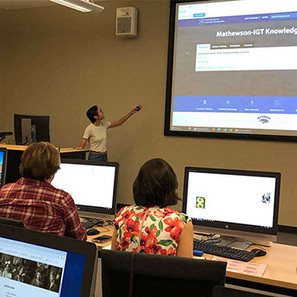
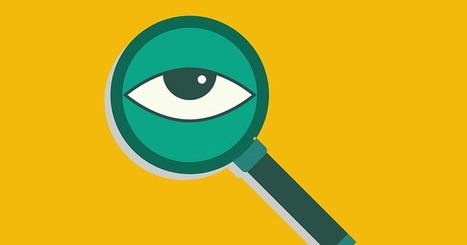

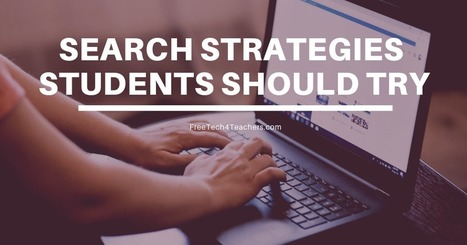



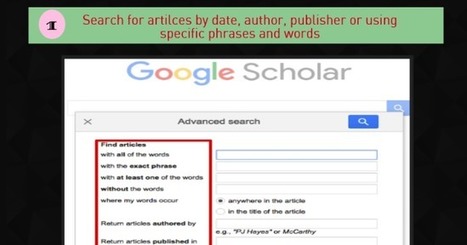
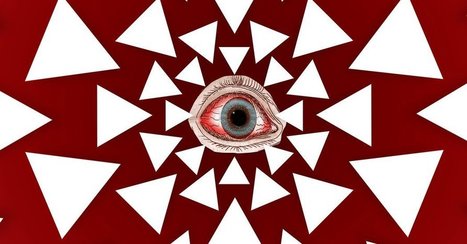
![Reliable Sources: Promoting Critical Thinking in the [Mis]information Age | Information and digital literacy in education via the digital path | Scoop.it](https://img.scoop.it/IU63pDheV-ct6OMSeL8OUDl72eJkfbmt4t8yenImKBVvK0kTmF0xjctABnaLJIm9)
